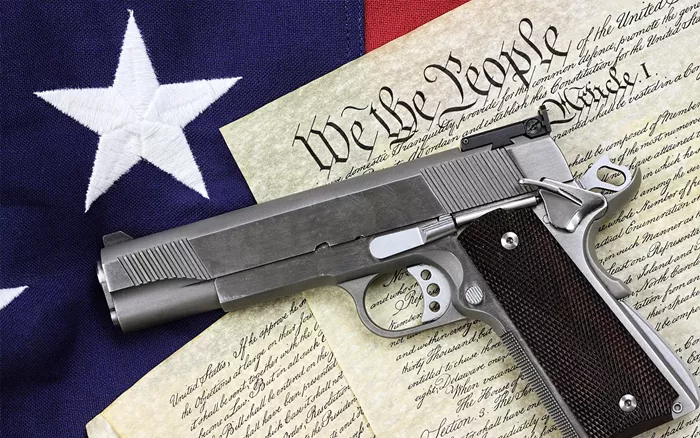The McDonald v. Chicago case, decided by the United States Supreme Court in 2010, is a landmark decision that reshaped Second Amendment law and its application to state and local governments. Below are 15 facts about this case, its significance, and the legal principles it helped establish.
15 Key Facts About McDonald v. Chicago
1. The Core of McDonald v. Chicago
McDonald v. Chicago centered on whether the Second Amendment’s guarantee of an individual’s right to keep and bear arms applies to state and local governments. Otis McDonald, the plaintiff, sued Chicago for enforcing a handgun ban that violated his right to self-defense under the Second Amendment.
2. Background of the Case
In 1982, Chicago enacted a handgun ban in response to rising gun violence. McDonald, a resident of Chicago, sought to challenge this ban, arguing that the Second Amendment protected his right to own a firearm for self-defense.
3. Significance of the Case
McDonald v. Chicago was crucial because it applied the Second Amendment to the states via the Fourteenth Amendment’s Due Process Clause. This decision incorporated the Second Amendment, ensuring that the right to bear arms could not be infringed by state and local laws.
4. Relation to District of Columbia v. Heller
McDonald v. Chicago followed the Supreme Court’s decision in District of Columbia v. Heller (2008), which held that the Second Amendment protects an individual’s right to own a firearm in federal jurisdictions. McDonald extended this right to apply to state and local governments.
5. The Key Principle of the Decision
The key principle of McDonald v. Chicago was selective incorporation. It affirmed that the rights guaranteed in the Bill of Rights, initially only applicable to the federal government, could be extended to the states through the Fourteenth Amendment.
6. What Did the Court Decide?
In a 5-4 decision, the Supreme Court ruled that the Second Amendment applies to state and local governments, effectively striking down Chicago’s handgun ban. The Court reasoned that the right to self-defense is fundamental and should be protected at all levels of government.
7. Impact on Federalism
McDonald v. Chicago had a profound impact on federalism. It clarified that the states are not entirely independent in their ability to limit rights enshrined in the Bill of Rights. The case reinforced the idea that certain rights, like the right to bear arms, are too fundamental to be left to state discretion.
8. The Establishment Clause and Its Role
While McDonald v. Chicago did not directly deal with the Establishment Clause, it did touch on constitutional rights’ application to the states. This was part of a broader trend where the Court used the Fourteenth Amendment to ensure that rights applied universally, beyond just the federal government.
9. The Right to Self-Defense
One of the central issues was whether self-defense was a basic right. The Supreme Court’s decision affirmed that self-defense is a fundamental right, and the Second Amendment protects an individual’s ability to possess firearms for that purpose.
10. Who Dissented in the Case?
The dissenting opinion in McDonald v. Chicago came from Justices Stephen Breyer, Ruth Bader Ginsburg, Sonia Sotomayor, and John Paul Stevens. The dissenters argued that the decision would lead to increased gun violence and that the right to bear arms should not be extended to state and local governments.
11. Selective Incorporation Explained
Selective incorporation refers to the legal doctrine that ensures that certain rights guaranteed in the Bill of Rights are applied to the states through the Fourteenth Amendment. McDonald v. Chicago was a prime example of this principle in action, applying the Second Amendment to state and local laws.
12. The Key Question of the Case
The essential question in McDonald v. Chicago was whether the Second Amendment right to keep and bear arms was applicable to the states. The Court answered affirmatively, deciding that the right to possess a firearm for self-defense is a fundamental right that must be respected by all levels of government.
13. McDonald’s CEO’s Firing and Its Irrelevance
McDonald v. Chicago had nothing to do with McDonald’s Corporation or its CEO. The case focused solely on Second Amendment rights and gun control laws. Any confusion about McDonald’s CEO being fired is unrelated to this legal case.
14. Federal vs. State Rights
McDonald v. Chicago clarified that, while states retain some rights to regulate firearms, they cannot outright ban them in a way that violates the individual right to possess firearms for self-defense. This case also marked a shift in how federalism is understood with respect to personal rights.
15. How McDonald v. Chicago Changed Gun Laws
The McDonald v. Chicago ruling drastically altered the landscape of gun laws in America, compelling local and state governments to reconsider restrictive firearm regulations. It opened the door for more legal challenges to local firearm restrictions, particularly in urban areas with high crime rates.
Conclusion
McDonald v. Chicago was a landmark Supreme Court case that reinforced the importance of the Second Amendment and clarified its application to state and local governments. By incorporating the right to bear arms through the Fourteenth Amendment, the Court ensured that this fundamental right cannot be infringed by any level of government. This decision significantly shaped American gun law and had profound implications for the balance of federalism in the United States.
Related topics:


